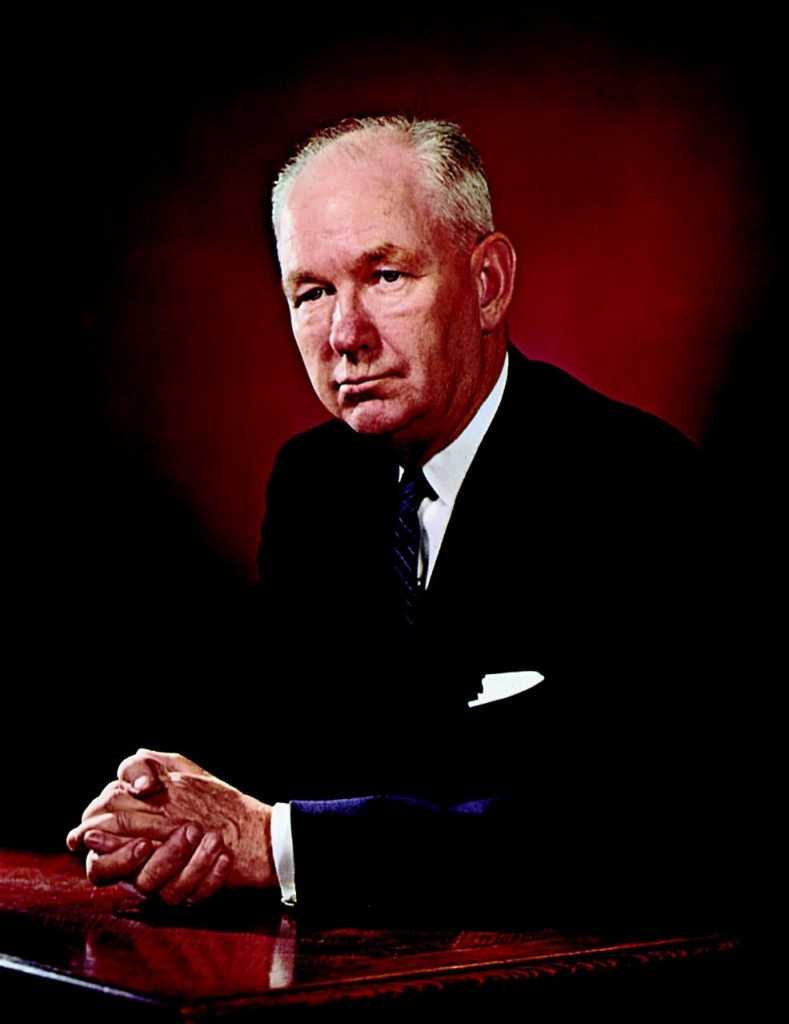Our Inspiration
On the shoulders of a giant, Robert Welch
The following short biography of Robert Welch is taken from Organize for Victory!
“How often has public calamity been arrested on the very brink of ruin by the seasonable energy of a single man?… [o]ne vigorous mind without office, without situation, without public function of any kind… I say, one such man, confiding in the aid of God, and full of just reliance on his own fortitude, vigor, enterprise, and perseverance, would first draw to him some few like himself, and then that multitudes, hardly thought to be in existence, would appear and troop about him.”
– Edmund Burke
It is not surprising that a biographer of Robert Welch would choose the above words of an 18th Century British statesman to introduce his work. Edmund Burke’s optimism seems as though it were written to describe Mr. Welch’s leadership in the freedom fight.
Robert Welch became most widely known for the organization he founded when he was 59 years old. But most of that attention came from those who supported what was happening to America and who were willing to distort the truth to stop what Mr. Welch was trying to do. Because of the strategy of his enemies to make him and his organization appear ridiculous, the public at large never had the opportunity to appreciate the stature of the man.

However, by age 59, Robert Welch had already amassed a substantial positive reputation and circle of influence, or he never would have been able to achieve the impact he did in so short a period of time thereafter…. Later, one of his colleagues in the freedom fight, the much admired American poet and essayist E. Merrill Root, would write the following about his friend:
“As you meet him in his quiet office at Belmont, or as you see him in public at a meeting or a John Birch Society dinner, you feel a power. It is not what we call today ‘charisma.’… It is a quiet power. It affirms and insists, through convictions, through an amazing knowledge, through a goodness and integrity that seem almost to be tangible. It is not oratory. He is not a spell-binder. He writes clearly, often brilliantly or eloquently; he writes better than he speaks. Yet somehow, something fundamental in the mind and the man, a grasp of things as they are, a sincerity and integrity flow out of him and into his audience. His power lies in his goodness and his truth. I have felt this, I have seen this, and I bear sober witness to it.”
Fortunately for the country he loved, Robert Welch was a rare combination of scholar, businessman, and leader. He was also a genius with integrity and devotion to duty. Brilliance is common, but brilliance with absolute integrity and successful accomplishment in the world of affairs is very unusual.
But perhaps what set him so far apart from many of his contemporaries was that he took pains to understand what had to be done and then stepped forward and did it. He didn’t just complain about the problem or dabble in a solution. When he finally saw clearly what had to be done, he committed his entire life to it.
That attitude was reflected in a poem he wrote decades earlier at age 20, entitled “At Twenty”:
If, fifty years from now, when I survey
The scanty roll of things that I have done,
I find a score of visions unfulfilled
And victories I dreamed of still unwon,
I’ll doubtless see mistakes that I have made
And places where I lost because I picked
the losing side;
But not a failure shall I find
In the trail I’ve left behind,
Where I might have won but didn’t, just because
I never tried.
